Clipless pedals 101

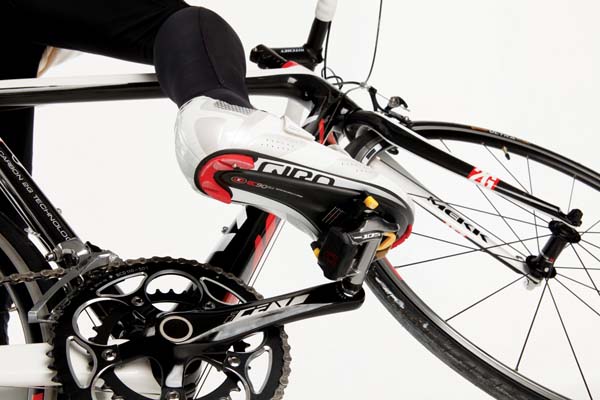
Words Neil Webb | Photos Mike Prior and Rupert Fowler
There is not a single person here in the CA offices that knows of a rider who, once the plunge to attach has been taken, has gone back to riding without ‘clicky shoes’.
The benefits are just so huge that it is simply incomprehensible to return to the old ways, and almost to a man (and woman) we are evangelical in the need to convert those who have yet to see the light. Like non-users, every one here had the same fears of being stuck to the bike: what happens if I crash? Can’t unclip? Fall off? Embarrass myself? Get run over while lying turtle-like on the roadside? Well, apart from the last one, everyone goes through the process of learning.
This relating of past experience just goes to show that, no matter how bad it seemed, we’ve all stuck with them and live happily in their grip with no fear. The only thing that gets damaged in the process is your ego — and everyone needs to have that knocked back a peg or two from time to time.
But why?
Indeed you may well ask, why you would want to be attached to your bicycle in such a secure way. The reality is, the human body isn’t massively powerful, and while the roller chain is among the most efficient devices ever invented for transferral of forces, if your foot is moving about all over the pedal, that efficiency is lost. With precious little oomph available to start with, making the most of it is key.
Being attached to the pedal is by far the best way to get the energy put in directly to the wheel, and thus onto the road, propelling us forward and enjoying the ride. The ability to remove the foot quickly and easily from the pedal is just as important, and while it will at first seem counter-intuitive to some to mechanically clip into your bike, the reality is, if you have toe clips and straps done up tight enough to make a difference, it is very difficult to get your feet out in an emergency.
Another benefit is the ability to move the bike around a lot more easily. Lifting the back wheel up a kerb becomes a cinch, and avoiding a pothole by bunny-hopping the whole bicycle over the offending crater is a case of simply jumping upwards. As with every skill on a bike, these become better with practice, so start small, but if you do ride off-road and on, the clipless pedal eureka moment will more than likely happen even more regularly.
Some history
Many companies have tried to design and engineer a safe method of attaching the foot to the pedal over the years to improve the cyclist’s performance. Early attempts left the release mechanism out of the equation and some track cyclists’ shoes were permanently attached to the bike. While that’s all well and good in a closed environment where no one has brakes and everyone always turns left, in the real world it was left to a company called Look to deliver the first commercial product in 1985.
Thanks to the knowledge gained in the design and manufacture of its ski bindings, Look came up with a system that effectively had a hook at the front and a pivoting clip that clicked over a lip to secure the rear of what became known as the cleat. A curvature to the rear-facing lip’s inner surface meant that when the foot was twisted about an axis at the front ‘hook’ section the spring-loaded rear allowed the cleat to be released once turned past a certain point. This two-part system has been the germ of every subsequent Look pedal, and in reality, every competitor’s product too. The three-bolt fitting pattern developed for Look’s cleat is now the default standard for road shoes.
Subsequent developments have resulted in the option of having the cleat recessed beneath the tread level (see page 54). This originated so mountain bike racers could clip in and still run over rough terrain. They have now found fans among road riders too. They offer a similar level of performance but, once off the bike, you can move around more readily. Tearoom floors are less treacherous, walking around town is simple and you can get shoes that look more ‘normal’.
Clipless pedals: Top tips
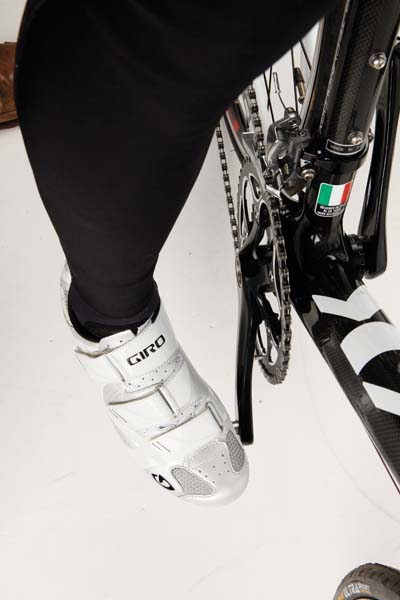
Kick away
While the first reaction when trying to get off a bike is to lift the feet, with clipless pedals, this will only tighten their grip. Simply training your brain to keep downward pressure on the pedal whilst twisting the ankle out is key. More simply put: imagine you are kicking the pedal away from you rather than pulling up from it.
Loosen up
At first, it may be better to loosen the retention system pressure while you get used to the pedal and shoe combo. However, you may not want to leave them too loose for too long because, if you’re jumping out of the saddle or pedalling vigorously for any reason your foot may hop out. That’s not a problem if you’re aware of it and every rider will have individual preferences. The reassuring thing to remember is that if you can get out when they are loose, you can get out when they are tight.
Maintain
Some lube on the pivoting parts of the pedal doesn’t go amiss, and make sure that dirt and muck isn’t stuck inside any hooks or crevices of the pedal. Keep an eye on plastic road-style cleats as they can wear. Worn cleats can accidentally release far more easily so keep an eye on the contact points front and rear.
Practise
Once set up, go somewhere safe, and preferably soft to practise. Accept the fact you will fall off. It’s OK. The more you get used to them before using them in anger, the less likely you are to have a panic moment in public. That said though, there will be one. But it’s OK!
Set-up
When it comes to setting up the cleat, we’d recommend getting it done at a good shop the first time. You can cause damage to ligaments and tendons in some circumstances with poor set-up. There are some good resources on the net, but there is also some tripe. If you are unsure, ask someone who you know actually knows.
Relax
The most important thing is to relax about using the pedals. It will get easier, they will always release in a crash. You will be embarrassed by them at some point. They will become second nature. Just enjoy the benefits.
A cropper on clipless
We’ve all been there. That moment of doubt when you panic that you can’t get your foot out. Despite this, we estimate that 99 per cent of riders will try clipless and never go back to their old pedal, because despite the odd mishap they really are the way forward and not nearly as scary as you think. Here are a few more humorous tales of clipless doubt.
"I was out on a 25-mile ride two weeks ago and still gaining confidence with clipless pedals. Well, on the approach to a roundabout I was cautious and looking around at traffic as half an hour beforehand a white van purposely sped up to get in front then cut in front of me to turn left. I was looking around forgetting my foot was still clipped in then everyone stopped, meaning I had to stop in between two cars. The two choices were to just fall, or grab the front of the taxi beside me to stop me from falling. I decided to grab the taxi and got a very strange look! I put my hand up said sorry and I think he couldn’t work out what heck I was doing! Needless to say I sprinted off and didn’t look back."
Ian Pullen, email
CA says: Luckily Ian was fine and is by no means the first person for this to happen to. If you’re feeling pressured by the traffic around you, try to remain calm, and remember that you may need a few extra seconds to get your foot out so take your time. Once you’ve forgotten once, you won’t do it again, and the key is to practise the motion until it becomes second nature.
"Having had years of experience with various clipless pedal systems I was pretty confident I could get my foot out, so kept my pedal retention fairly tight on my road bike. One morning I grabbed my mountain bike to ride to work and completely forgot the SPDs were set up at the loosest setting, plus were pretty tired out. I sprinted through a traffic light to make it before it went red and as I pulled up on the pedal, my foot flew out and the momentum threw me over, somersaulting across the road. For all the pain and a trip to A&E, it turned out I’d only broken a finger and bruised my ego but otherwise, a lucky escape from a silly mistake."
Rebecca Charlton, assistant editor
CA says: This just proves that despite a level of experience we all make mistakes. She won’t go so hard through those traffic lights again!
"I purchased some Dura-Ace pedals and was so chuffed as soon as I was out of the store I clipped in for what I thought was going to be an uneventful commute home. Well I went about 50 feet, indicated to pull out round a parked car, heard the bus blaring its horn, swivelled in and tried to clip out to stop and KERPLOW — flat as a pancake with my head lying in perfect position for passing traffic to flatten. Have never used them since!"
Meagan Birch, email
CA says: An unfortunate experience like this can really put you off having your feet clipped in, and understandably so. However, it’s important to remember that practice makes perfect and we hope Meagan will try again in a quieter environment and regain her confidence before trying them out on the road again.
"Soon after I transferred to SPDs I had an incident. I lived in north London and was commuting home. I came up to a red light at the front of four lanes of traffic at the junction of Turnpike Lane, got one foot stuck in the pedal and fell over in an ungainly heap. Didn’t help that my still-clipped-in foot was now trapped under the bike. Somehow I managed to get up before the lights turned green. I decided the best reaction was to feign nonchalance and cycle off into Hornsey Park Road as if nothing untoward had happened. I’ve no doubt that there were four lanes of drivers absolutely wetting themselves though."
Sarah Strong, email
CA says: That moment when you know you’re going to topple over and hit the deck may be amusing to others but it can still leave you with a bruised hip and dented ego to match! That said, you must get up, practise and try again because once you’ve passed this initiation you’ll wonder what you were ever worried about.
Choose your weapon: The options
Here is a selection of what is available on the clipless market. It is in no way exhaustive, but should give you an indication of the systems open to you.
Exposed cleats (aka road)
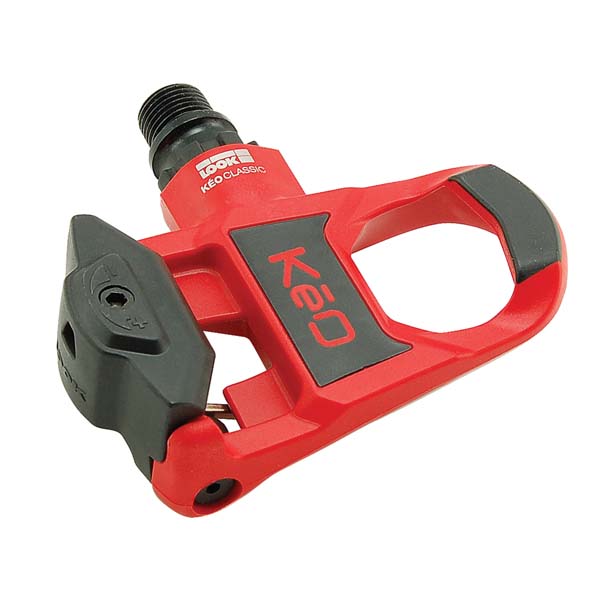
Look Keo £54.99-£274.99
The most recent system has reduced the size of the cleat while increasing contact between pedal and body. The Keo offers fixed, and two float level options for the cleat fixing. (Many third party companies licence Look’s design, and are cheaper.)
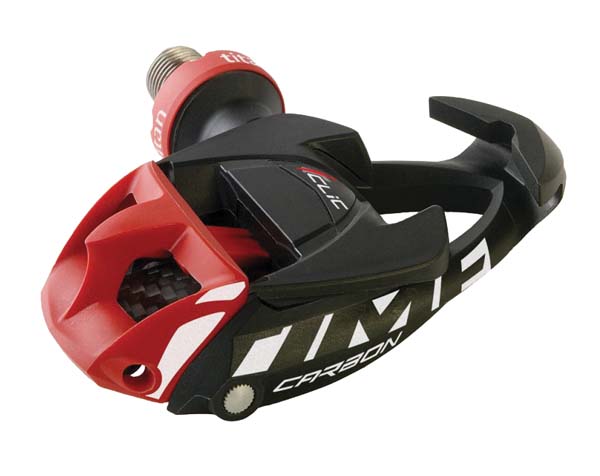
Time I-Clic £81.99-274.99
Often favoured by riders with knee issues, they offer lateral float as well as rotational. Metallic elements to the cleat are claimed to reduce accidental release and longer cleat life.
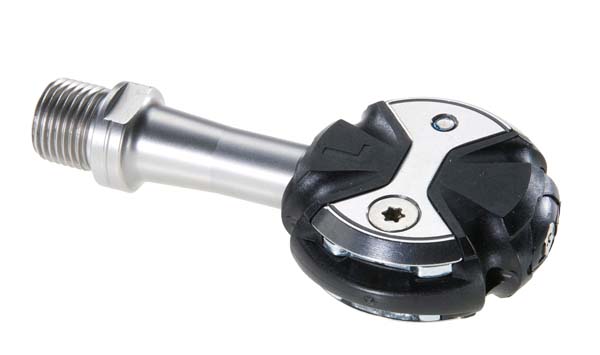
Speedplay £109.99-599.99
Looking like lollipops, the retention mechanism is moved to the cleat. Double sided as a result, they offer more ready access as well as vast levels of tuneability — from float to release angle. Rocking motion between shoe and pedal is claimed to be eliminated, offering a more secure fixing to the bike.
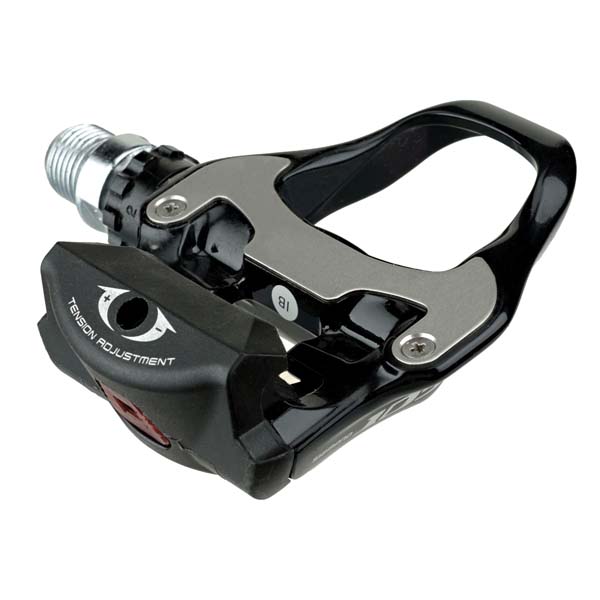
Shimano SPD SL £39.99-219.99
Identical in principle to Look, The SPD SL uses a wider cleat and pedal body for a large contact area. Fixed and float cleats are available and both have tabs to prevent walking wearing out the contact/release points.
Recessed cleats (aka mtb)
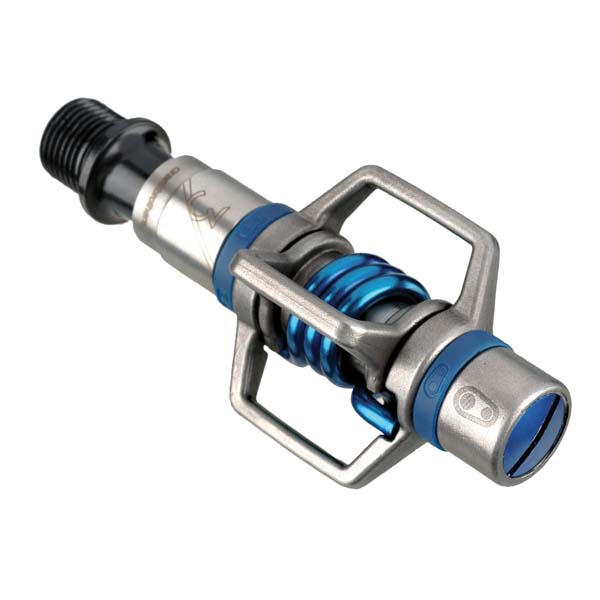
Crank Brothers Eggbeaters £44.99-£384.99
Another metallic hoop design but rather than two sided, Crank Brothers pedals offer engagement on four axes. Rotational float levels are switched with cleat position so instruction reading and attention paying are essential when first fitting.
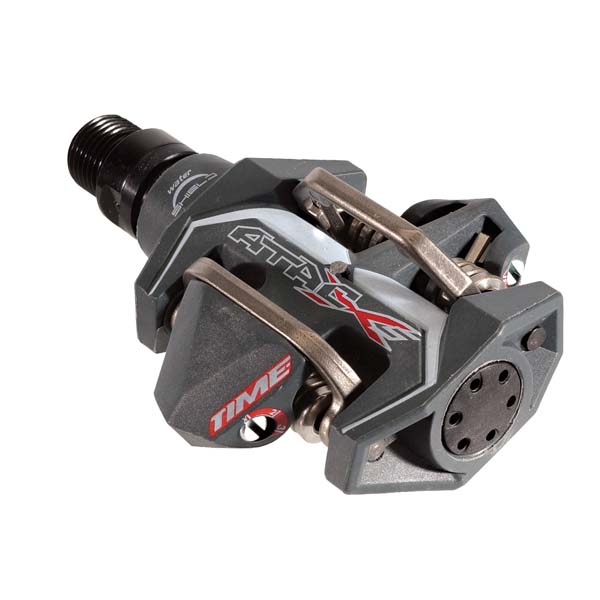
Time Atac £46.50-254.99
Using a metallic hoop for the front hook and a pivoting hoop for the rear clip, Time’s Atacs are designed to clear debris from around the cleat better than most. As with their road pedals, float is lateral and rotational.
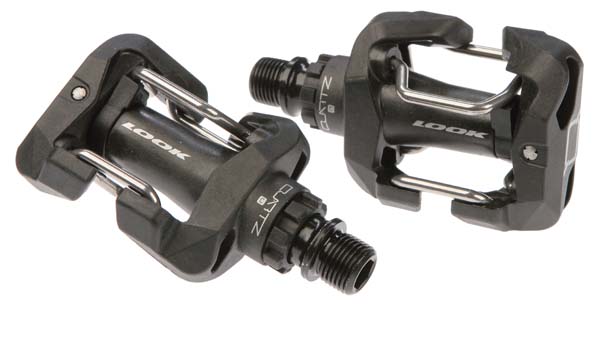
Look £69.99-£274.99
Like Time, Look uses a metallic hooped bar for retention rather than the clawed hook of Shimano and others. Lateral float isn’t offered but debris clearance is.
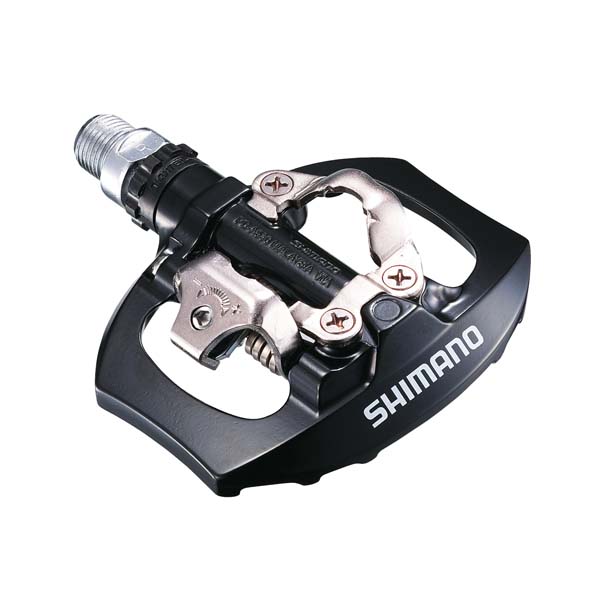
Shimano SPD £39.99-119.99
The original SPD pedal by which many people refer to all recessed cleat designs. Single or multi-release cleat options, and a huge range of road, and mtb pedals — the latter are all double-sided.

Thank you for reading 20 articles this month* Join now for unlimited access
Enjoy your first month for just £1 / $1 / €1
*Read 5 free articles per month without a subscription

Join now for unlimited access
Try first month for just £1 / $1 / €1
Get The Leadout Newsletter
The latest race content, interviews, features, reviews and expert buying guides, direct to your inbox!

Nigel Wynn worked as associate editor on CyclingWeekly.com, he worked almost single-handedly on the Cycling Weekly website in its early days. His passion for cycling, his writing and his creativity, as well as his hard work and dedication, were the original driving force behind the website’s success. Without him, CyclingWeekly.com would certainly not exist on the size and scale that it enjoys today. Nigel sadly passed away, following a brave battle with a cancer-related illness, in 2018. He was a highly valued colleague, and more importantly, an exceptional person to work with - his presence is sorely missed.
-
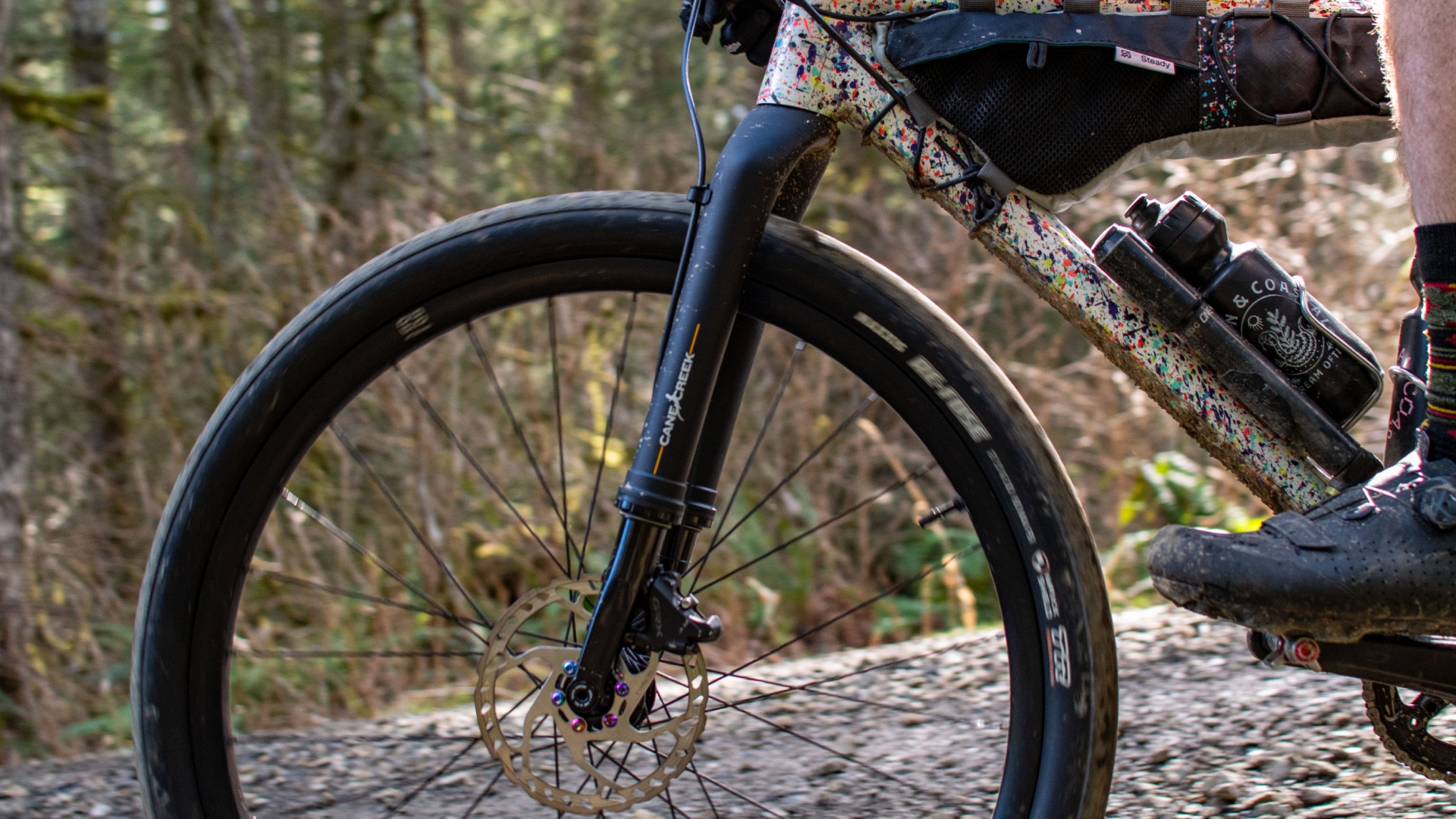 Review: Cane Creek says it made the world’s first gravel fork — but what is a gravel fork, and how does it ride?
Review: Cane Creek says it made the world’s first gravel fork — but what is a gravel fork, and how does it ride?Cane Creek claims its new fork covers the gravel category better than the mini MTB forks from RockShox and Fox, but at this price, we expected more.
By Charlie Kohlmeier
-
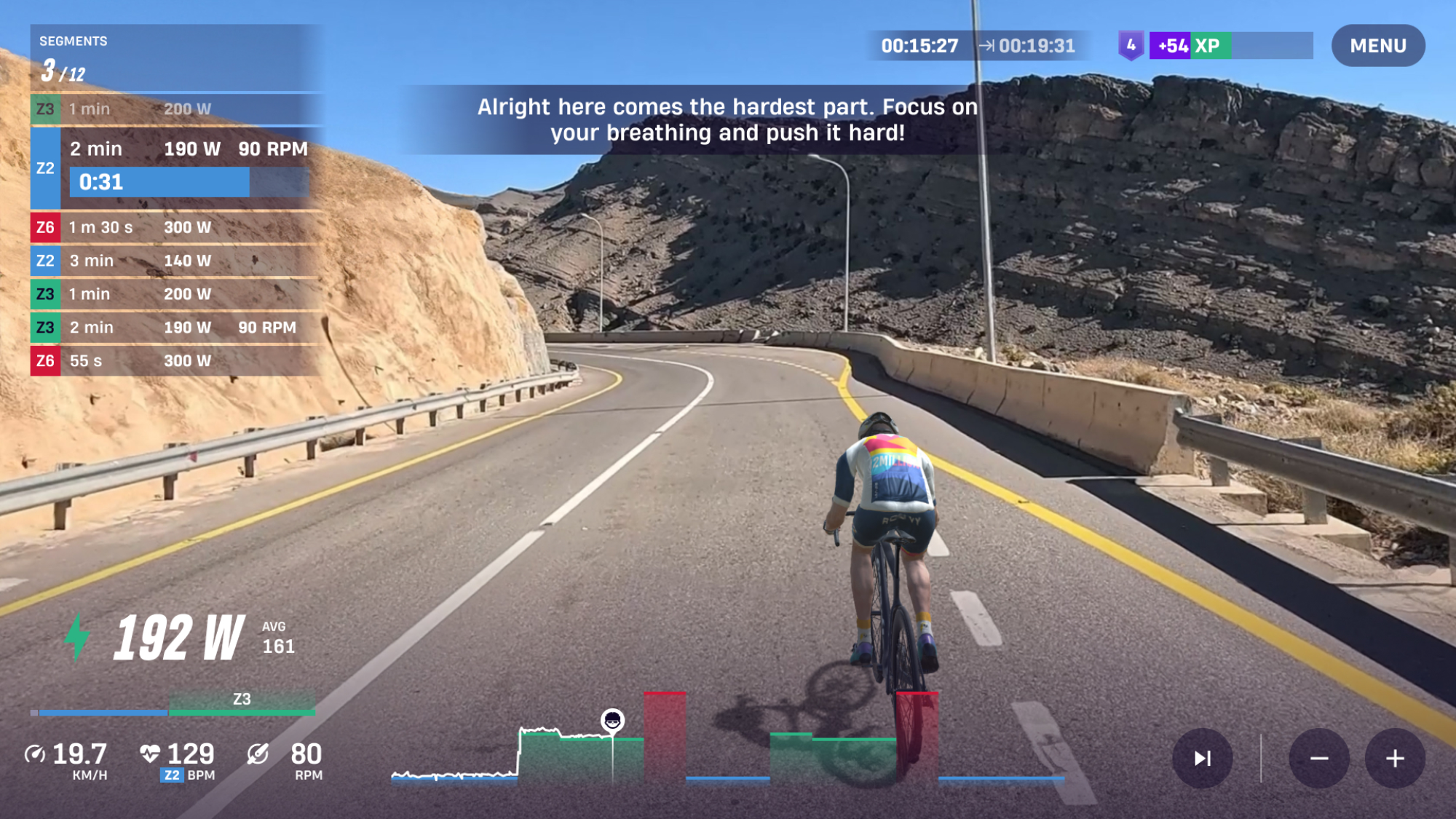 ROUVY's augmented reality Route Creator platform is now available to everyone
ROUVY's augmented reality Route Creator platform is now available to everyoneRoute Creator allows you to map out your home roads using a camera, and then ride them from your living room
By Joe Baker